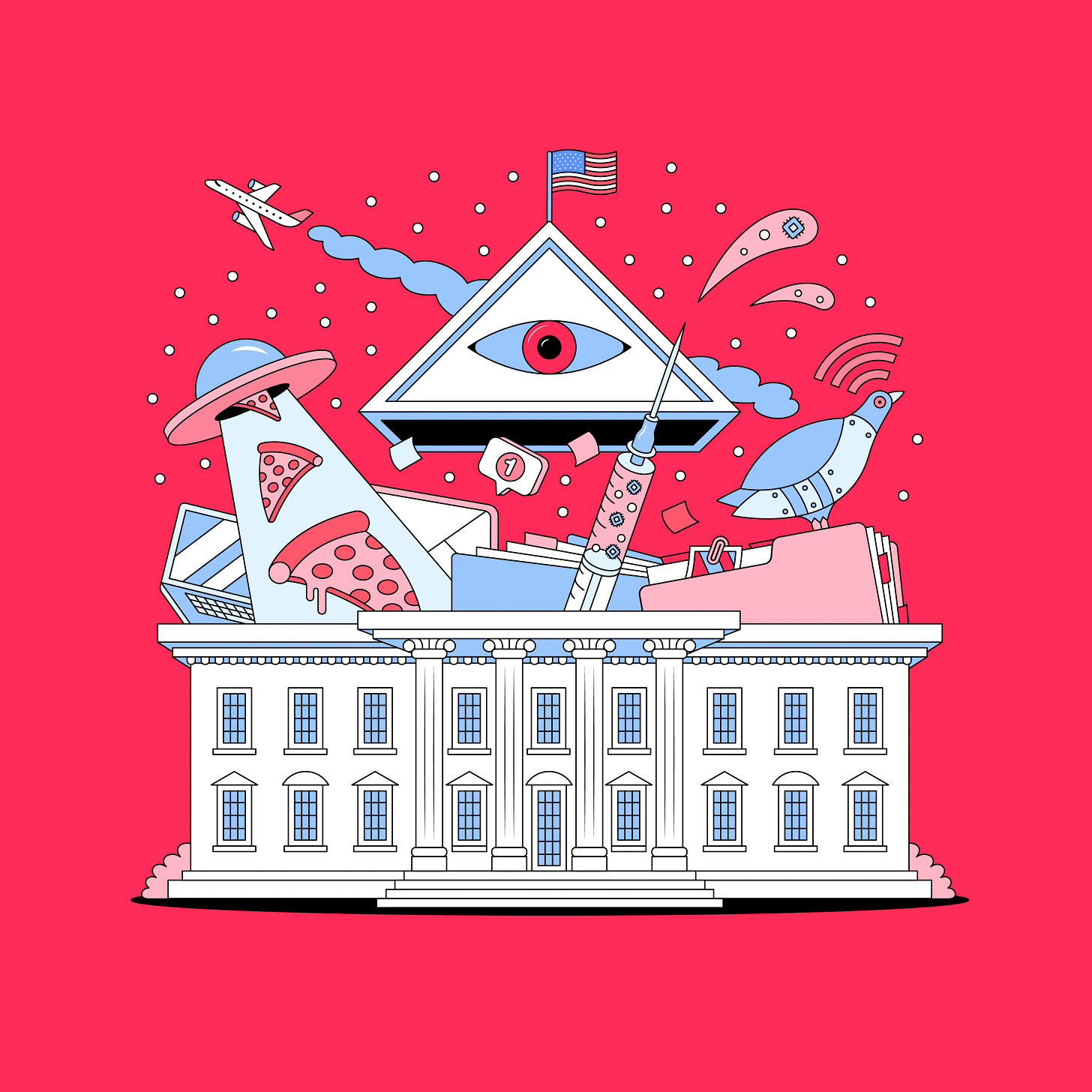 Illustration by Till Lauer for The New Yorker
Illustration by Till Lauer for The New Yorker
Friends,
Here are the two contradictions lying at the heart of the contretemps over Trump and Jeffrey Epstein:
- As early as May, Trump knew his name was in the Epstein files. Attorney General Pam Bondi and her deputy informed Trump at a meeting in the White House that his name appeared “multiple times.”
But on July 15, when a journalist asked Trump, “Did [Bondi] tell you at all that your name appeared in the files?” Trump responded, “No, no.”
- Bondi said in February that Epstein’s client list was “sitting on my desk right now to review.”
But on July 7, the Justice Department stated that a thorough review had turned up no list of Epstein’s clients.
Neither of these is evidence that Trump was involved in Epstein’s activities with underage girls. But together they suggest a cover-up — which can kill a presidency.
Exhibit A: Nixon. Of Tricky Dick the oft-repeated question was “What did he know, and when did he know it?” That’s being asked of Trump now.
Like Nixon, Trump is trying to cover up his cover-up. One day after The Wall Street Journal revealed that a letter bearing Trump’s name that was included in a 2003 birthday album for Epstein, Trump sued the Journal, calling the letter “nonexistent” and claiming the article defamed him.
Trump’s problem is that so many Americans — including most of his MAGA base — believed that, once back in the Oval Office, he’d expose a powerful global elite centered on pedophilia. But what if Trump is part of that elite?
Some of Trump’s senior staff — such as Dan Bongino, deputy director of the FBI — built their reputations on exposing that supposed elite. Bongino now says the decision not to release the Epstein files has eroded his credibility among his supporters.
Poor fellow. Bongino became a successful podcaster and media personality precisely because he fueled conspiracy theories linking pedophilia, Epstein, and the global elite.
Another of the deepening ironies here is that Trump’s effort to target his enemies has blurred the line between the White House and the Justice Department — making it harder for Trump to distance himself from the Department’s sudden reversal on releasing the Epstein files, thereby adding to the specter of a cover-up.
The appearance of a cover-up gets even worse now that the House of Representatives has left for its August recess a day earlier than expected because Speaker Mike Johnson — a close ally of Trump — wanted to stop a bipartisan discharge petition that would have forced a vote on the release of the Epstein files.
Senate Republicans may be more open to a bipartisan investigation. Missouri Senator Josh Hawley, a member of the Senate Judiciary Committee, says, “Whatever the bottom line is, I’m in favor of releasing it.” Hawley also suggests a joint committee made up of House members and senators to get to the bottom of the growing issue.
Recall that Nixon faced a joint committee of Congress that sought to “get to the bottom” of Watergate.
Epsteingate won’t end because members of Congress go home for August recess. Just the opposite. Because it remains unresolved, more stories will emerge suggesting a cover-up. Republican town halls will be filled with such charges.
Trump hasn’t learned the essential lesson of Watergate: When the public senses a cover-up, you have no choice but to expose everything. Otherwise, the cover-up metastasizes into a “cancer on the White House,” in John Dean’s infamous phrase.
From Robert Reich via this RSS feed


